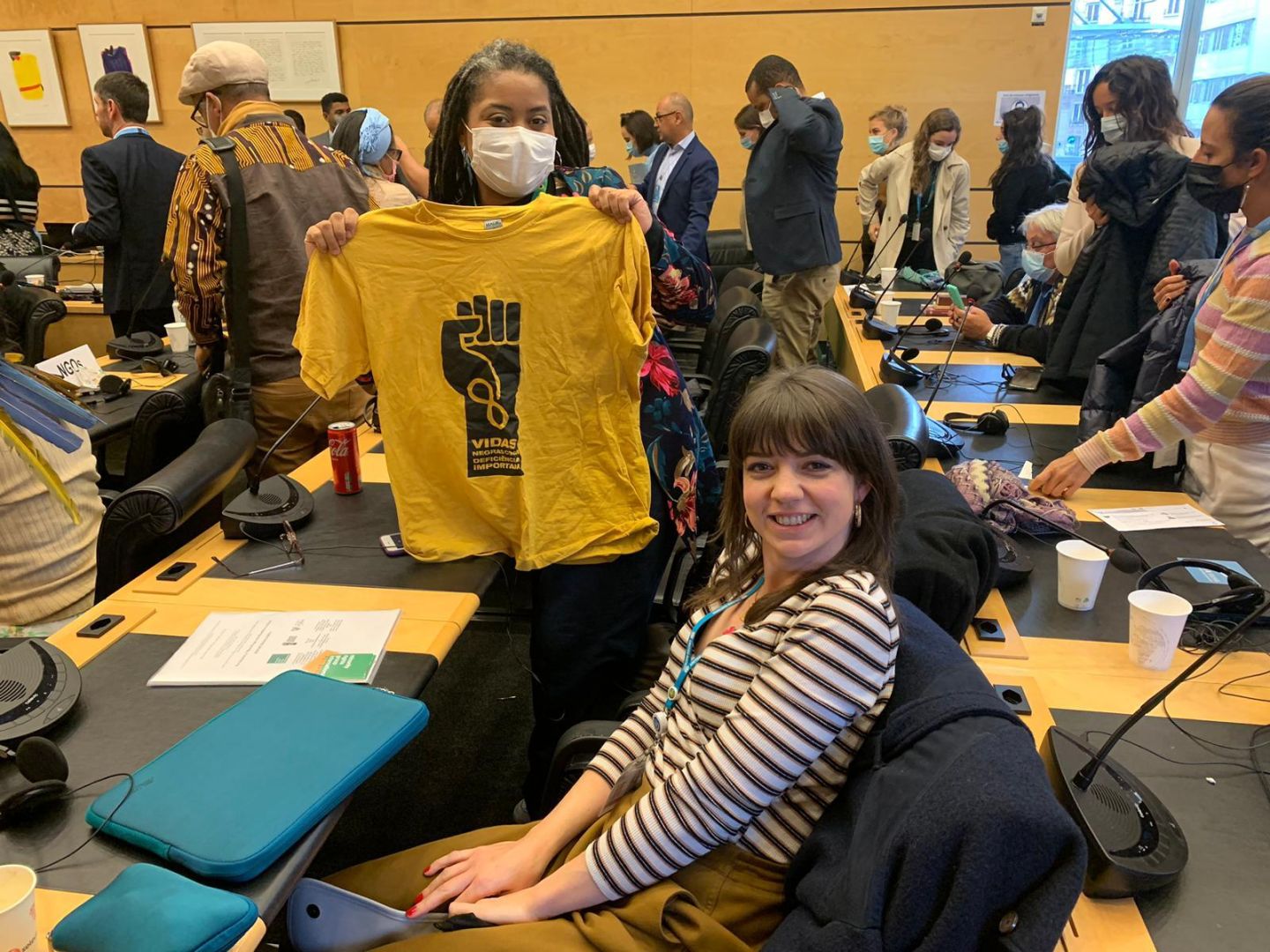
UN Committee makes historic recommendations to Brazilian Government on intersectional discrimination between disability and race
Today, the UN Committee on the Elimination of Racial Discrimination (CERD) made historic recommendations relating to intersectional discrimination on grounds of race and disability to the Government of Brazil.
These recommendations are direct recollections of recommendations made by Minority Rights Group (MRG) and its partners, Vidas Negras com Deficiência Importam, Brazil and the University of York, UK, in an alternative report on the situation of Black people with disabilities presented to the committee.
The Committee’s Concluding Observations echoed a total of eleven mentions of disability intersectional discrimination and five of the recommendations from the alternative report.
One of the CERD’s recommendations is to provide adequate funding to collect disaggregated data, focusing on ‘the situation of Afro-Brazilians, Indigenous peoples and Quilombolas facing intersectional forms of discrimination, including those with disabilities and/or who identify as LGBTQI+’ – a key recommendation from the alternative report.
‘This is a moment worth celebrating,’ says Lauren Avery, Minority and Disability Intersectional Discrimination Officer at MRG and one of the lead researchers who worked on the alternative report. ‘Intersectional discrimination is often overlooked because of its complex root causes and a lack of data. We are thrilled that our research has brought these issues to light in Brazil, and that it is being used to make key policy recommendations. This is a step towards much-needed change for Black people with disabilities.’
Further recommendations based on the work of the project team included the remuneration of care work for Black women, the implementation of comprehensive anti-discrimination laws and a renewal of Brazil’s education quota system.
‘This is one of the most important moments for Brazil and its debate about double discrimination,’ says Luciana Viegas, a Black autistic activist, Director of Vidas Negras com Deficiência Importam in Brazil and another lead researcher on the alternative report. ‘Primarily because black people with disabilities are being remembered and coming out of invisibility, signalling to the world that we are also subjects of rights.’
The project team recently delivered a statement to the UN committee last month and are undertaking further advocacy initiatives to highlight the higher rates of violence, unemployment, restricted access to education, poorer health, fewer economic opportunities, and marginalization from social and political participation experienced by Black people with disabilities in Brazil.
Black people in Brazil are significantly more likely to live in areas that are physically inaccessible and without adequate sanitation, lighting or drainage. As a result, Black people with disabilities are some of the most vulnerable in the Brazilian society; they are overrepresented among the homeless, incarcerated and institutionalized populations.
The recommendations were made in the CERD’s concluding report, following its review of the Brazilian State during the 108th Session of the Committee. These concluding observations are released one day ahead of the International Day of Persons with Disabilities, proclaimed in 1992 by the United Nations General Assembly. The observance of the Day aims to promote an understanding of disability issues and mobilize support for the dignity, rights and well-being of persons with disabilities. However, minority and Indigenous people with disabilities remain the furthest left behind.
Notes to editors
- Read the alternative report to the Committee on the Elimination of Racial Discrimination (CERD) submitted by Minority Rights Group, Vidas Negras com Deficiência Importam (Brazil) and the University of York, UK.
- Minority Rights Group (MRG) is the leading international human rights organization working to secure the rights of ethnic, religious and linguistic minorities and indigenous peoples. We work with more than 150 partners in over 50 countries.
- Vidas Negras com Deficiência Importam (Brazil) are a movement created by black people, people with disability and especially black people with disabilities in the search for an anti-racist and anti0ableist society. It mobilizes through civil society actions and advocacy.
- University of York is a member of the Russell Group and a dynamic, rsearch-intensive university in the United Kingdom
For further information contact press [at] minorityrights [dot] org.
—
Photo: Luciana Viegas of Vidas Negras com Deficiência Importam (left, holding a yellow VNDI t-shirt) and Lauren Avery of Minority Rights Group (lower centre right, seated) in Geneva, Switzerland, presenting the alternative report to the UN Committee on the Elimination of Racial Discrimination. Courtesy of Lauren Avery.